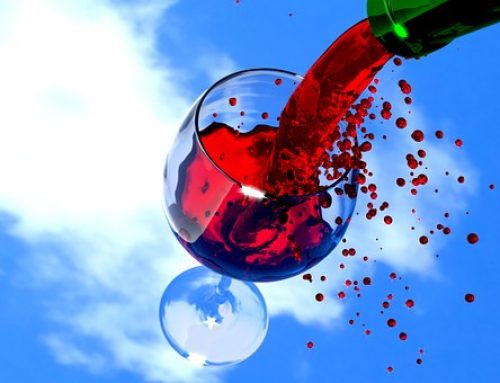In our Q&A, Grahm has plenty to say about the state of Rhone varietals on American turf, off beat packaging and why he suspects he’s not really a maverick even though the world sees him as one.
The Rhone Rangers, for the uninitiated, are vintners and growers producing wines in America from grape varieties originally made famous across the pond in France’s Rhone Valley. The group is having a big tasting in San Francisco this weekend, one that usually draws quite a few Rhone-lovers from the North Bay. (www.rhonerangers.org)
Grahm is one of the original Rhone Rangers, and he coins himself “President-For-Life at Bonny Doon Vineyard in Santa Cruz. Here’s what he has to say about everything under the sun:
Q: You are often called a maverick. Do you think it’s a fitting description of you and if so, why?
Grahm: “I may be a maverick, just don’t call me Brett Maverick. (Insert laugh here). I’m not sure that I’m really that much of a maverick, just someone who is trying to do things a little bit differently from everyone else. Part of this may well be my slightly narcissistic personality, but the other part is really just simple business. You really need to have a differentiated product if you are to survive in the market. (This is in fact the only thing I really know about business.) I also have something like a mild (or major) case of Attention Deficit Disorder, which leads me to explore every possible winemaking/grape growing idea that I can imagine.”
Q: You’ve spent the last 25 years producing Rhone wines in California. Why Rhone wines? What about them romanced you?
Grahm: “As you may know, I more or less accidentally came to Rhône varieties as a sort of default when it was clear to me that it was not likely that I was going to produce an utterly brilliant pinot noir at my estate vineyard in Bonny Doon. It was Kermit Lynch who really got me interested in Rhone wines in the first place, back when he had a little shop in Albany, CA. I had the very simplistic idea that maybe one could produce a complex blend from Rhone varieties in the style of a Chateauneuf-du-Pape. We had the most important grapes of the blend already in California; the real question was could you make a blend that would additively synergize, i.e. make something far more complex than the sum of its parts. Miraculously, there were still some beautiful extant cool climate grenache vineyards. David Bruce had made a powerful, red grenache twice (in ’70 and ’71). If he had made this kind of wine, then theoretically it might be possible to have a very good starting point for a blend. And then further, there was very old vine, dry-farmed mourvedre still extant; also boding very well for a blend. syrah – a bit iffy at the time, but, we wouldn’t use too much syrah. (There was no cool climate syrah then to be had.)”
Q: You’re being honored this weekend with a Lifetime Achievement Award at the Rhone Rangers event in San Francisco. Do you like awards or are you like Woody Allen and dodge the spot light?
Grahm: “I am of course quite honored, but generally quite flummoxed when people say nice things about me. I think that it would not be particularly gracious to dodge the award, but it is in fact a little bit of a torture for me.”
Q: How has your off beat packaging served you?
Grahm: “Honestly, it’s a bit of a mixed bag. On the one hand, it has been enormously successful in selling popularly priced wines, but it has also established the perception that I can never really get serious about anything, that I’m always, on some level, kidding around. This has to change. (Serious face.)”
Q: What has been your biggest achievement in your life regarding wine?
Grahm: “This is almost impossible for me to answer. I’m not really sure that I’ve really made much of a contribution to date. (If I were to die any time soon, they would say, “What a great marketer he was!”). Certainly, the popularization of the Rhône varieties was something, but the reality is that this was something that was inevitable. If it hadn’t been me, it certainly would have been someone else a year or two later. In candor, I really do believe that my very best work is ahead of me if I can live long enough. Now that I imagine I understand a thing or two about wine, I feel I am ready to do something truly original and potentially helpful to the accretion of wine knowledge. (Hint: it’s about wines of place.)”




